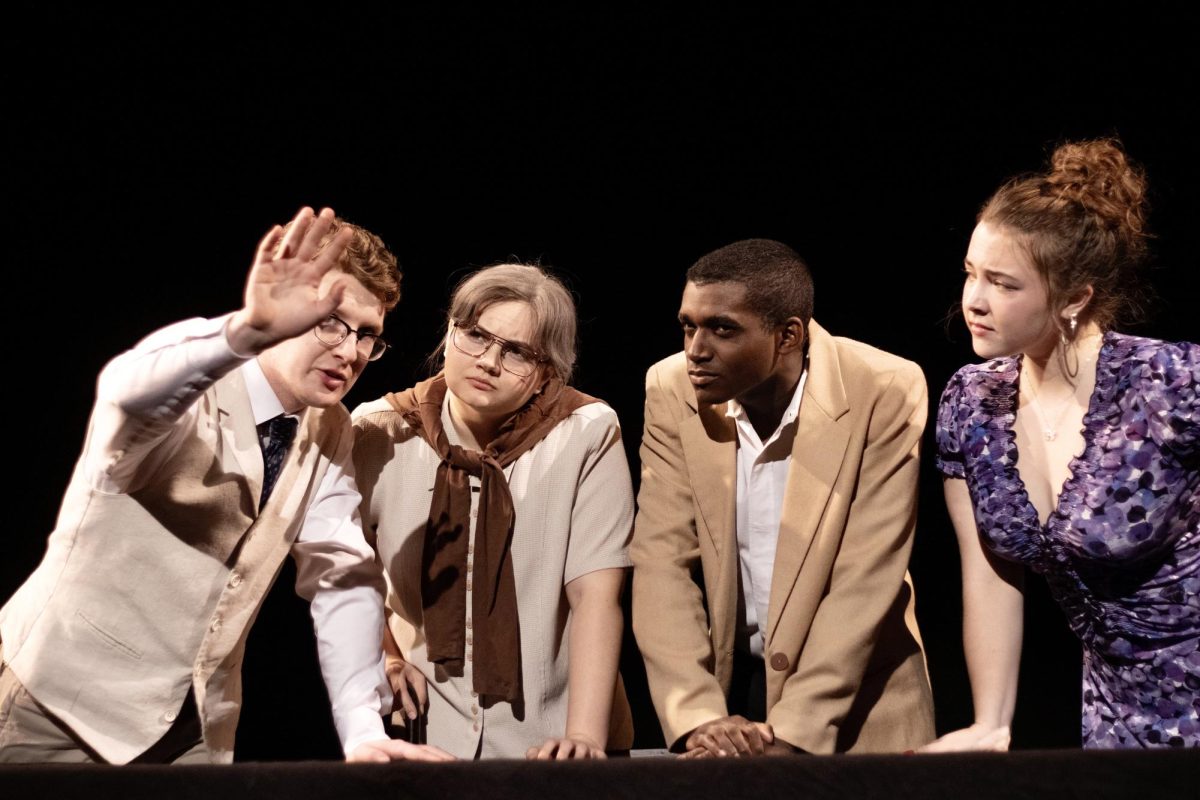The weekend of November 8-10, the Abbey Players performed a riveting stage
adaptation of 12 Angry Men: 12 Angry Jurors. With a cast full of familiar faces, the show was poised to be a hit. And it was a hit. Having never seen the original film, I was unsure of what to expect, but my expectations were monumentally exceeded. I attended the first showing on Friday, November 8th, but by the performances I wouldn’t have known that it was their first live run. The audience entered the lit theater to see a stage filled, but plainly. Normally. There were not much more than three tables with chairs, a water cooler, a trash can, a window, and a door. After a short while, the lights dimmed. Over the next 90 minutes, this drab jury room would become a lively but tense place, and the audience would feel every change. The slow but steady process by which Juror 8 convinced the rest of the jury, and by extension the audience, that there was reasonable doubt to be had about the guilt of the defendant was masterfully executed in the methodology of the writing as well as in the brilliant acting. Each character feels distinctly realistic, like someone that almost all of us have met or could conceivably meet. The process of converting the rest of the jury, while complex, was not excessively contrived and was
in fact completely convincing from a realist perspective. Every cast member pulled their weight and then some, but it was the character dynamic between Ben Harrington’s portrayal of Juror 3 and Owen Bland’s portrayal of Juror 8 that sold this gripping drama which had myself and many others on the edge of our seats. Their contentious conflicting perspectives and fiercely confrontational argumentative styles, while heightened, gave the performance a gravity and reality that was almost palpable. A major point of contention was Juror 8’s assertion of
reasonable doubt based on the fact that people often say things like “I’ll kill you” to one another and then don’t kill them, something that Juror 3 vehemently denies until a heated confrontation between them in which he screams “Let me at him I’ll kill him,” to which Juror 8 responds “But you don’t really mean that you’ll kill me, do you?” This exchange was what cemented the vitriolic ideological rivalry between Jurors 3 and 8, and also the one that showed that Juror 8 was in the right. Overall, this show and the movie it’s based on are still deeply relevant today, even despite the film being nearly 70 years old. It’s a treatise on how important it is not to get caught up in popular opinion, but also how one shouldn’t resist something just because it is a belief held by a majority. It teaches an extremely important lesson on thinking things through, and not always going with your first instinct, especially when someone’s life is on the line. While jury duty is not something that everyone is called to do, anyone could be called to do it. Should any of us be called for jury duty, this show is an excellent preparation to treat jury duty, and within it, the defendant’s life and livelihood, with the appropriate level of care and weight. 12 Angry Jurors
made for 1 Happy Audience, and for this and all other reasons I give the show a 10/10.


